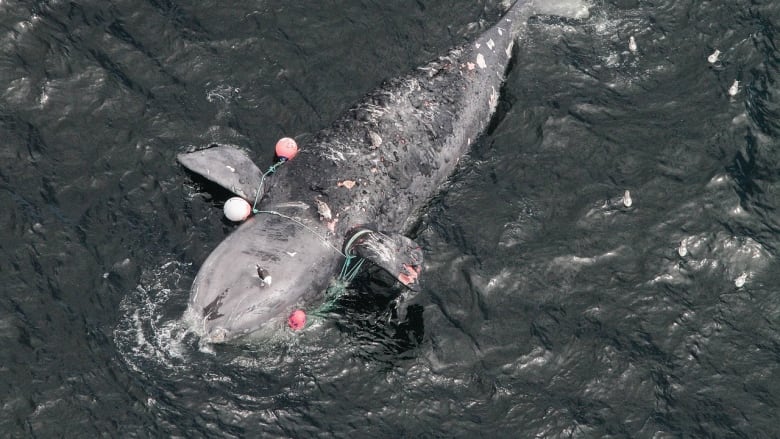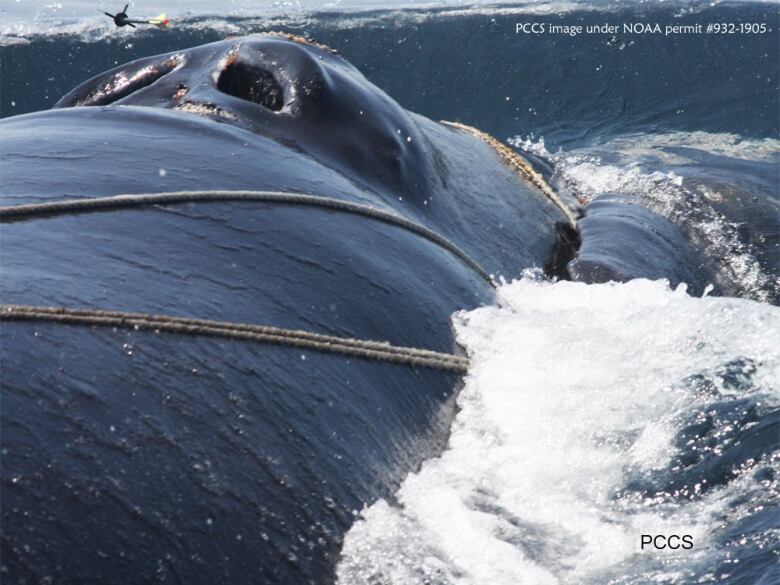Canadian lobster industry a threat to North Atlantic right whales, conservation group says
Were not very happy says head of Lobster Council of Canada

Canadian and American lobster fisheries pose a "dire" threat to the North Atlantic right whale, according to a seafood conservation group.
California-based Seafood Watch says both countries do not do enough to reduce the risk of entanglement in fishing gear.
"As a result, Seafood Watch assigned a red rating to those fisheries using pots, traps, and gillnets," a news release said.
Seafood Watch is a program at the Monterey Bay Aquarium in California that calls for a more sustainable approach to how seafood is fished and farmed.
It says the North Atlantic right whale is in danger of becoming extinct and their population has decreased by 25 per cent in the last decade.
Entanglement in fishing gear is the leading cause of injury and death, Seafood Watch says.

Fisheries in Canada and the United States deploy a combined one million vertical lines of gear throughout North Atlantic right whale habitat and migratory routes, according to Seafood Watch.
"We're not very happy with their claim," Geoff Irvine, executive director of the Lobster Council of Canada, told CBC News.
Irvine says it was a surprise to be "red listed" because his organization is regularly in contact with Seafood Watch about their efforts to mitigate harm to right whales.
"Canada is a world leader in how we are managing interactions with right whales," he said.
Lobster fisheries have adapted gear and equipment to reduceinjuries to whales and use planes and other tracking devicesso they can shut down operations when a whale is nearby, Irvine says.
He says it's impossible to remove all vertical lines.
"We think we're doing the very best we can given the balance we're trying to strike between protecting the whales and protecting the livelihood of thousands of Atlantic Canadians."
Thousands of businesses use Seafood Watch's recommendations to inform seafood buying decisionsand many have pledged to avoid any items that appear on the red list.
HelloFresh, the Germany-based meal kit company, pledged shortly after the announcement to stop selling lobster in the U.S.It said in a follow-up statement that HelloFresh Canada never used lobster in any of its recipes.
"We know that there are some consumers who take this Seafood Watch very seriously," Irvine said.
"We will just continue to tell our story and make a very strong argument for still buying Canadian lobster."












_(720p).jpg)


 OFFICIAL HD MUSIC VIDEO.jpg)
.jpg)



























































































